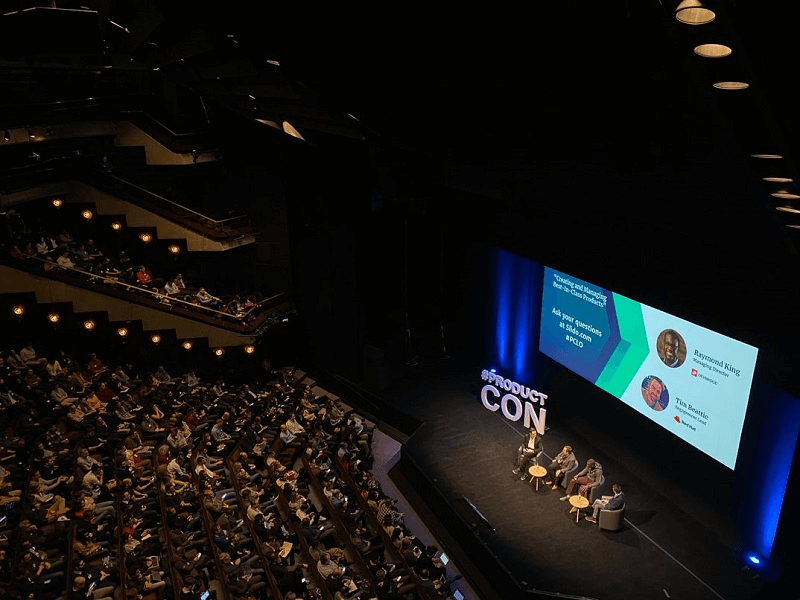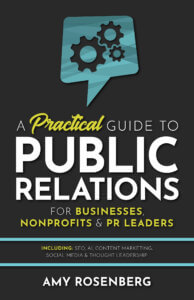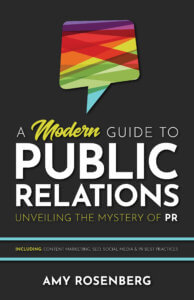
Get the Most Out of Your Next Trade Show with Public Relations Support
After the pandemic put a nearly year-long pause on major in-person gatherings, industry trade shows are beginning to happen again. Their return brings critical opportunities for businesses to connect with industry contacts and potential new customers. However, participating in these exhibitions typically comes at a high cost for companies — both in time and resources. Add in the hassles and risks of traveling during the COVID era, and it’s more important than ever to make the most of these events. Fortunately, an excellent public relations (PR) team can help you take advantage of the sometimes hidden opportunities accompanying a trade show so your team can get every ounce of value out of all its hard work.
PR Offers Help at Every Level

Trade shows are so valuable because they offer an opportunity for your business to gain more exposure within its industry. There are many different ways to participate in these events, from simply attending to giving keynote speeches. But no matter your next trade show plan, PR can help you make the most of it. Here’s how:
Attending
Attending a trade show can be a great way to network with your industry colleagues. But unless you’re a world-class extrovert with unlimited free time, making those connections yourself can sometimes be challenging. That’s where PR comes in. PR professionals can reach out to their colleagues on the team organizing the show to ask for a media list and/or lists that include contact information for exhibitors and attendees. Your PR team can then use this information to set up strategic meetings with important contacts. This kind of support allows trade show attendees to maximize their limited time by focusing on high-value opportunities.
Exhibiting
Another common way to participate in a trade show is by exhibiting your products or services. Exhibitors receive the most value from their efforts when connecting with as many people as possible during the show. PR professionals can help exhibitors by getting the word out more broadly and driving the media and potential customers to your booth.
This process begins by writing a press release, blog post and/or social media posts detailing why you’re attending the show, what you’ll be doing there and timely information like new product launches. Many trade shows run dedicated websites where you can upload a press release and earn a potentially valuable link back to your website.
PR pros will also use these press releases to pitch media members covering your industry. During larger trade shows, the media often attends in-person and actively seeks out compelling story ideas. In those instances, PR professionals can arrange interviews, which provide exposure extending beyond the show itself.
Sponsoring
Trade show sponsorships provide additional exposure opportunities beyond what an exhibitor would receive. For example, your company might sponsor a meal or a closing cocktail party that would put your brand directly in front of attendees. A sponsorship could also include paid speaking engagements where you could directly present your products or services to potential customers. Sponsorships also typically include expanded profiles on trade show websites or other marketing materials. With a PR professional’s help, you can maximize the value of your current sponsorship assets and discover additional opportunities you may not know existed.
Speaking
Most trade show speaking opportunities aren’t paid for at all. Instead, they result from building relationships within your industry and with the organization that’s putting on the event, often a trade association. These presentations are typically less of a direct sales pitch and more of a teaching opportunity where you share helpful information about your industry. Speaking engagements are fantastic ways to gain exposure for yourself and your business.
It takes a lot of work to develop a presentation. If you’re already working with PR professionals on a thought leadership strategy, such topics can be fertile ground for trade show speaking engagements. Your PR team can use this content as pitch material for trade show speaking slots with a bit of development.
Once you’ve landed a speaking engagement, your PR team can transform your presentation into other media forms — like guest articles, blog posts, podcast or video topics and social media posts — so the content has as broad a life as possible. Your team may also uncover other opportunities associated with speaking engagements like media interviews or even appearing as a guest on an industry podcast.
Connecting
Perhaps most importantly, a PR team can help you develop or enhance your relationship with event organizations, which are often trade associations. These people also typically control trade show content, the association blog, webinars, podcasts and other digital marketing avenues. With a good relationship in place, your PR team can begin offering content to the association that they can share on their marketing channels, which will improve your presence in the industry.
A PR team can take this same approach by examining the event’s vendors, sponsors and speakers, searching for collaboration opportunities. If there’s a vendor with an active blog in your industry, is there an opportunity to write a guest article? If one of the trade show speakers also hosts a podcast, is there a space to appear as a featured guest? Discovering these opportunities is a great reason to start a relationship with someone in your industry or trade and work together on mutually beneficial projects.
Make Your Trade Shows Count
Once upon a time, trade shows were a chance to escape the office for a little glad-handing and golf with industry buddies in a warm-weather destination. While networking is still a priority, digital tools have transformed trade shows into a hub for multimedia content production that extends a show’s value beyond the event itself. All it takes is a competent team of PR professionals that can take the reins and help you make the most out of the available opportunities.




